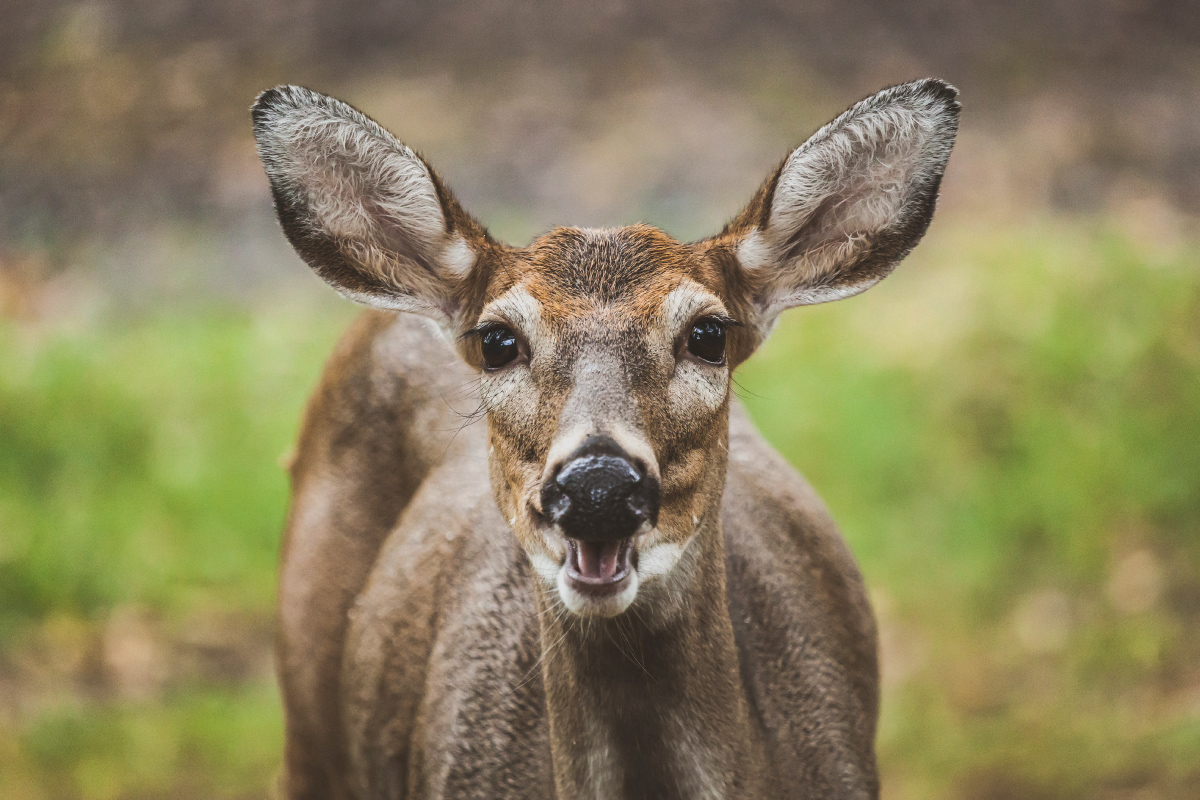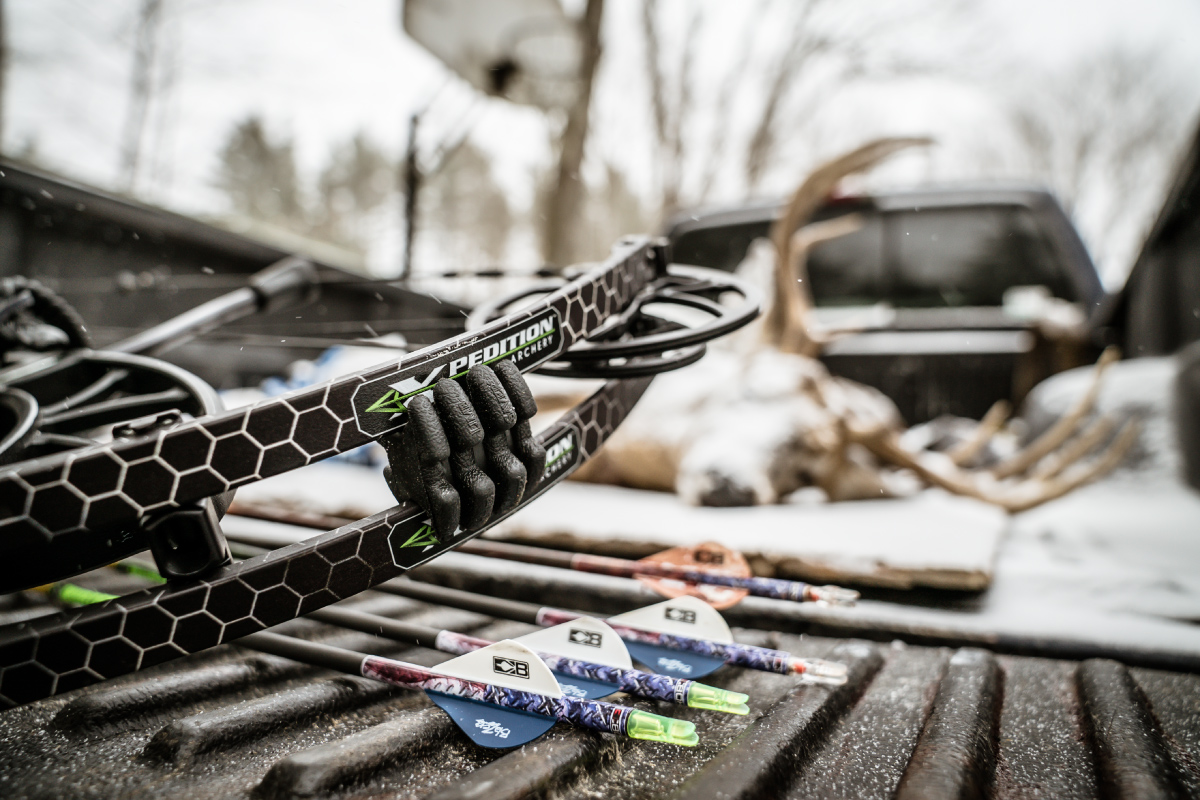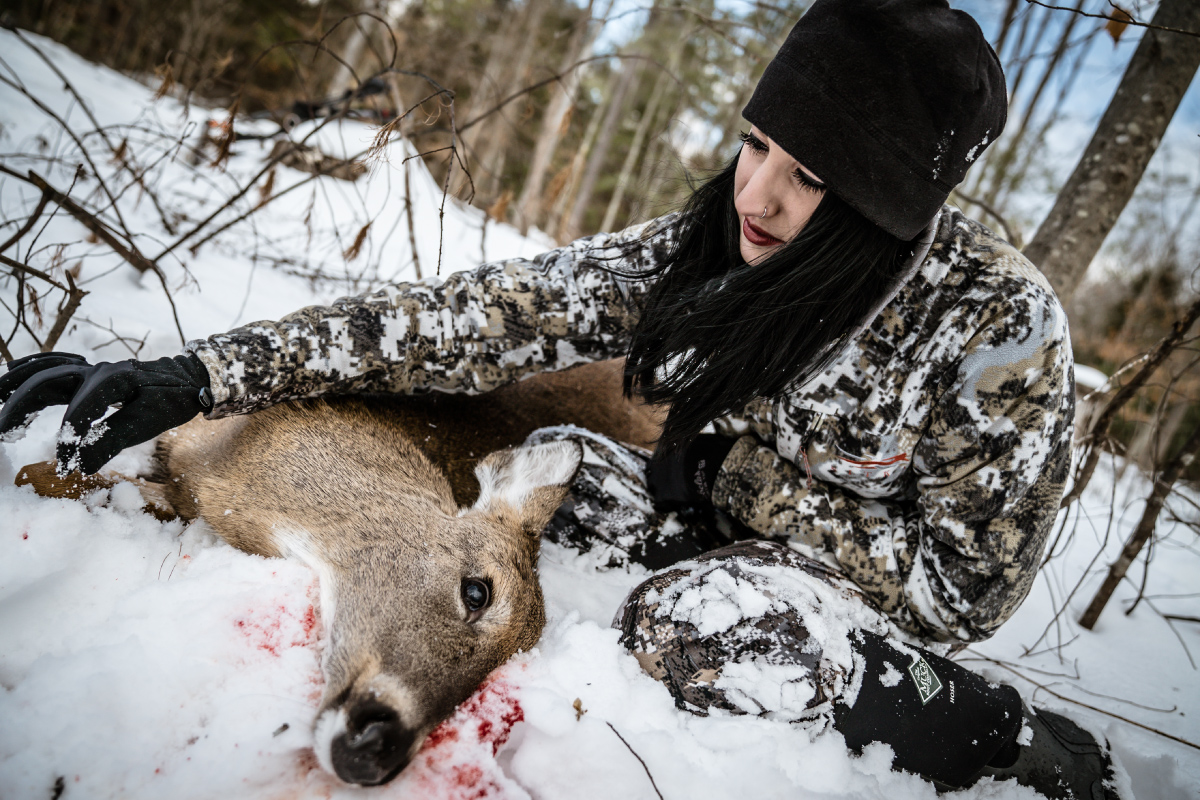
A.J. DeRosa founded Project Upland in 2014 as an excuse…
To argue for scent control is to defend a science that is for the most part, rather loose.
In my opinion, there is no substitute for good woodsmanship skills. But when it comes to hunting an animal that registers scents in just a few parts per million—and trusts that sense of smell over all other senses—we have to say that, yes, scent control matters.
If you don’t use any scent reduction products, playing the wind and setting yourself downwind of a game trail is a form of scent control. And even if you use scent control products and ozone-creating technologies fanatically, you should always play the wind in your favor. It’s the first step to reducing your odor.
If you’ve read either of the Urban Deer Complex books, you know that we are obsessed with the psychology behind why deer do what they do, when they do it, and where they do it. If you live in farm country or the big woods, leaving human scent in any amount will cause some sense of alarm to any deer that smells it. I suggest being an absolute scent control freak and using every and any form of scent control you can afford to use.
On the flip side, if you hunt the small woodlots and public lands of the densely populated eastern states, these deer smell people every day. Sometimes all day long. These deer have developed far different views regarding human scent than their rural cousins. Here’s a sneak peek into Urban Deer Complex 2.0 which starts to explore how urban deer relate to scents:
“Whitetail deer need to be exposed to a scent in order to begin associating an experience with it. In rural woods, the human scent is by default a sure indication of danger. In suburban America, it becomes far more complicated. If deer ran in panic at every human scent, they would have nowhere left to run in urban America. This has forced them to create very complex perceptions of humans and the scents associated with them.
“As previously stated, a particular deer could feel differently about the same scent in different locations. For example, if a whitetail smells cologne on a walking trail, they will most likely dismiss it and only go on alert, with or without the human presence. Take that same cologne scent and move it 100 yards off the trail and we will most likely cause instant panic in the same deer.
“The continuing debate about scent control is now more relevant than ever in suburban America. Scent control is still applicable to the suburbs, but it comes with different rules. If we intend to still hunt walking trails, employing crazy tactics such as using perfume or cologne may pose an advantage for a clever hunter. Whitetails have most likely never had a negative experience associated with these scents, thus making the deer more relaxed.
“On the contrary, such classic mainstream hunting scents, like earth scent, could have a negatively reinforced association with your local deer and scent association. The only other time a deer might smell earth scent is on another hunter. [There are] two major points here. One, we should not hesitate in trying strange new techniques associated with scent. Two, we should always seek to dissect how our own local deer populations interpret human scent, since it can be vary within the short distances.
“We will not dismiss scent control as an effective whitetail hunting method. The most successful hunters all practice some sort of scent control at varying degrees. We are ultimately adding our own relevant and local knowledge to what scent control means to deer and scent in that area. The gasoline on our boots from the gas station may not be a deal breaker after all.”
In closing, there is no doubt that scent control matters. Every hunter takes part in some form of scent control. Our goal is to get you to think outside the box of traditional hunting methodology and be willing to adapt your own methods.
A.J. DeRosa founded Project Upland in 2014 as an excuse to go hunting more often (and it worked). A New England native, he grew up hunting and has spent over 30 years in pursuit of big and small game species across three continents. He started collecting guns on his 18th birthday and eventually found his passion for side-by-side shotguns, inspiring him to travel the world to meet the people and places from which they come. Looking to turn his passion into inspiration for others, AJ was first published in 2004 and went on to write his first book The Urban Deer Complex in 2014. He soon discovered a love for filmmaking, particularly the challenge of capturing ruffed grouse with a camera, which led to the award-winning Project Upland film series. AJ's love for all things wild has caused him to advocate on the federal and state levels to promote and expand conservation policy, habitat funding, and upland game bird awareness. He currently serves as the Strafford County New Hampshire Fish & Game Commissioner in order to give back to his community and to further the mission of the agency. When those hunting excuses are in play, you can find him wandering behind his Wirehaired Pointing Griffon in the mountains of New England and anywhere else the birds take them.



